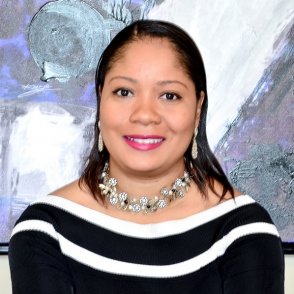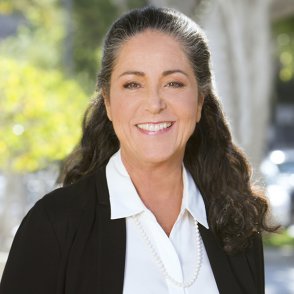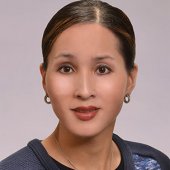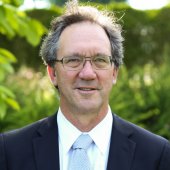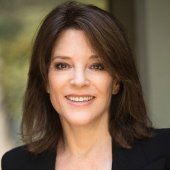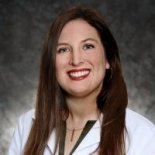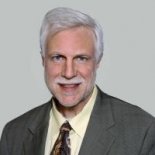Canceled Clients (4762)
Children categories

Train Your Body (438)
The show for fitness buffs or beginners. Expert guest from the American College of Sports Medicine (ACSM) discuss all areas of fitness, nutrition, athletics and sports medicine.
View items...
Staying Well (382)
RadioMD’s “talking” Health A-Z hosted by senior health correspondent, Melanie Cole, MS. Melanie interviews experts in the world of health, wellness, fitness and medicine.
View items...
Healthy Talk w/ Dr. Michael Smith (698)
Integrative physician, Michael A. Smith, MD is committed to providing listeners with the most current health information available.
View items...
Naturally Savvy (899)
Registered Holistic Nutritionist, Andrea Donsky and health expert Lisa Davis discuss their passion for living a natural, healthy lifestyle.
View items...
Eat Right Radio (48)
EatRight Radio, with experts from the Academy of Nutrition and Dietetics, discusses food and nutrition topics, healthy weight, allergies and health conditions, healthy aging, food safety and so much more. Give us 10-minutes and we'll give you the important information and expert advice from registered dietitian nutritionists to help you eat right, feel better, and live a healthier life. Hosted by Melanie Cole, MS.
View items...
Sharecare Radio (235)
Sharecare Radio, hosted by Sharecare’s own Dr. Darria Long Gillespie, SVP of Clinical Strategy at Sharecare, will appear live every Tuesday from 12 to 1 p.m. EST on RadioMD. Dr. Darria will break down the top health news of the week, pull in experts from around the country on a wide array of health topics and answer listeners’ live questions on all things health.
View items...
Wellness for Life (455)
On Wellness For Life Radio you will learn practical, easy-to implement tips to improve your life and start feeling better — the natural way.
View items...
The Wizard of Eyes (163)
Dr. Robert Abel Jr. talks about many of the important and unrecognized parts of our visual system which we so often take for granted. The show covers the usual common ocular disorders with an East/West approach to both prevention and therapy. The eye-brain connection is presented with information about memory retention, Alzheimer's, the myopia epidemic, and many more subjects. Dr. Abel discusses how the eye and vision are connected with remote parts of the body including your gut flora, musculoskeletal system, blood pressure, drugs and lifestyle. practical and simple health tips.
View items...
Code Delicious with Dr. Mike (135)
Code Delicious with Dr. Mike breaks all the rules. Unabashedly confronting the questions, concerns and conundrums that continually confuse both public and experts alike; Dr. Mike takes us on a tasty trip of inquiry.
View items...
CLEAN Food Network (98)
This show is a call to action for all the clean eating revolutionaries that care about their health and how and what they eat. Non-GMO, natural, organic . . . food the way nature intended. The clean food movement is huge and is growing exponentially. This companion program talks to experts in food preparation, healthcare, celebrities, and even those companies that care enough to provide the best, wholesome, organic foods and groceries.
View items...
Talk Healthy Today (213)
Looking to create your best self? Whether it’s good-for-you lifestyle hacks, smarter ways to supplement, or tasty tips to fuel optimal health, Talk Healthy Today brings you the latest research, tools, and common sense tips you need to get and stay healthy... starting today!
View items...
Be a Doer (17)
Be A Doer features master coach and TV personality John Abdo as he shares health and fitness tips aimed at getting you in shape – and keeping you there!
View items...The Power of Probiotics (3)
Probiotics is a major global industry. But like any industry, it had to have a beginning. Natasha Trenev is the daughter of an Eastern European family where the manufacturing of yogurt was a generational business. When Natasha emigrated to the US in the 1960’s, she brought with her 750 years of family experience with probiotics – and introduced the science (and the term itself) to her new country. Today, Natasha’s California-based Natren, Inc. is the recognized pioneer in probiotics and company founder Natasha Trenev has earned recognition as the Mother of Probiotics. Her more than 50 years of work in natural health is at the core of the unparalleled success of her company – and you will benefit from her depth of expertise in each and every episode of THE POWER OF PROBIOTICS.
Probiotics are live microrganisms that are commonly referred to as ‘friendly,’ ‘good’ or ‘healthy’ bacteria that function to help maintain the natural balance of organisms in the intestine. Throughout Natasha’s extensive work in the field of probiotics, she has always been amazed by how nature provides the very ‘good’ bacteria that can help overpower ‘bad’ bacteria to keep our digestive tracts functioning at peak performance. Properly cultivating friendly bacteria and ensuring their potency is at the core of the Natren Process. Natren is cited – by retailers, by the medical community and by consumers – as the best probiotic supplement available. Only Natren carefully chooses its probiotic cultures, formulates and manufactures its industry standard probiotics in its own plant and utilizes a specially-formulated oil matrix to protect probiotics bacteria to survive until they reach their destination in the upper small intestine. This is why only Natren is the most trusted probiotic supplement on the market. Truly, where other probiotic supplements promise – Natren Delivers.
To learn more about how probiotics can benefit your health, we are proud to introduce you to THE POWER OF PROBIOTICS with The Mother of Probiotics, Natasha Trenev.

Your Brain Health (24)
Noted Los Angeles-based neuroscientist and media personality Dr. Kristen Willeumier launches Your Brain Health with Dr. Kristen Willeumier, a podcast series that explores the latest news and information in the burgeoning science of brain health.
View items...Additional Info
- Segment Number 1
- Audio File naturally_savvy/ns888.mp3
- Featured Speaker Keisha Blair, Economist
- Book Title Holistic Wealth: 32 Life Lessons To Help You Find, Purpose, Prosperity and Happiness
- Guest Website Keisha Blair
- Guest Twitter Account @KeishaOBlair
-
Guest Bio
Keisha Blair is a trained Economist, with extensive experience in the public, private, and not-for-profit sectors. She started her career working on economic development projects sponsored by the World Bank and Inter-American Development Bank. She was a senior economist working in economic development and corporate finance, working on several federal budgets. She was part of the Prime Minister’s delegation to the World Economic Forum in 2018 as well as the East-Asia (ASEAN) Summit in Singapore. She led on events such as the FORTUNE Most Powerful Women Summit in Montreal, Canada and the Fortune Global Forum. She is a graduate of the Executive Leadership Program at Harvard University’s John. F Kennedy School of Government.
Keisha has an Msc in public policy from Carleton University in Ottawa. She has been profiled in the New York Times, and has been featured in the New York Observer, Thrive Global, the Harvard Business Review among many other publications. Her viral article, “My Husband Died at 34: Here are 40 Life Lessons I Learned From It”, was featured in/or linked to by over 160 websites and viewed by more than 50 million people worldwide.
Keisha Blair is passionate about gender equality and women’s economic empowerment. - Length (mins) 34:25
- Waiver Received Yes
- Host Andrea Donsky, RHN and Lisa Davis, MPH
Additional Info
- Segment Number 1
- Audio File wellness_for_life/wl431.mp3
- Featured Speaker Nalini Chilkov, LAc
- Organization American Institute of Integrative Oncology
- Book Title 32 Ways to OutSmart Cancer: Create a Body Where Cancer Cannot Thrive
- Guest Website Integrative Cancer Answers
- Guest Facebook Account www.facebook.com/DrNalini
- Guest Twitter Account @doctornalini
-
Guest Bio
 Dr. Nalini Chilkov is the Founder of IntegrativeCancerAnswers.com and author of the bestselling book, 32 Ways to OutSmart Cancer: Create a Body Where Cancer Cannot Thrive. As a leading authority on Integrative Cancer Care, immune enhancement, optimal nutrition and wellness medicine, Dr. Nalini is a highly regarded speaker and expert resource to the media.
Dr. Nalini Chilkov is the Founder of IntegrativeCancerAnswers.com and author of the bestselling book, 32 Ways to OutSmart Cancer: Create a Body Where Cancer Cannot Thrive. As a leading authority on Integrative Cancer Care, immune enhancement, optimal nutrition and wellness medicine, Dr. Nalini is a highly regarded speaker and expert resource to the media.
Over more than thirty years, Dr. Nalini has helped thousands of people, many with serious and chronic illnesses, achieve and maintain extraordinary health and longevity and is sought out by Hollywood celebrities and insiders. Her OutSmart CancerTM Programs are recognized as the most comprehensive, science-based, safe and natural programs for supporting cancer patients, survivors, and those who do not want to get cancer to Get Well, Stay Well and Live Well.
Dr. Nalini is acknowledged as a goto clinician in Suzanne Somer’s book, Knockout: Doctors Who Are Curing Cancer and How to Prevent Getting It in the First Place. She has appeared as a health expert on NBC TV, is a popular ongoing contributor to the Huffington Post, and has been recognized by WebMD and Dr. Mehmet Oz’s ShareCare.com as a Top Ten Online Influencer on Breast Cancer.
Nationally recognized physicians Dr. Frank Lipman and New York Times best-selling author Dr. Mark Hyman call her their “go to resource.” Celebrity nutrition and fitness expert and New York Times bestselling author JJ Virgin sums it up, “If you have cancer, you go to Nalini. Period.”
Her private practice is located in Santa Monica (Los Angeles), California. - Length (mins) 27:54
- Waiver Received No
- Host Susanne Bennett, DC
Additional Info
- Audio File christiana_care/crc012.mp3
- Doctors Kim, Nancy
- Featured Speaker Nancy Kim, MD
-
Guest Bio
Nancy Kim, M. D. attended State University of New York at Binghamton for her undergraduate BS degree in Biology (1994) with magna cum laude. In 1998, she completed her Doctor of Medicine at Albert Einstein College of Medicine. Her clinical training included a year of Internal Medicine at Beth Israel Medical Center in Manhattan (1999).
Learn more about Nancy Kim, MD -
Transcription
Melanie Cole (Host): Low back pain, if you’ve ever had it, you know it can be debilitating and keep you form taking part in the activities that you really enjoy. But when that pain begins to interfere with your daily life; it might be time to see a physician to assess that pain. This is ChristianaCare’s Moving Freely podcast series. I’m Melanie Cole. And today we’re talking about low back pain. Joining me is Dr. Nancy Kim, she’s a Physician with ChristianaCare. Dr. Kim, I’m so glad to have you with us today. This is such a common problem, such a common complaint, so many millions of people have low back pain. What are some of the most common causes of it that you see?
Nancy Kim, MD (Guest): Back pain is so common and there are many different reasons why it is so common. Part of everyday living is using your back so for instance, it could be something as simple as vacuuming, washing the dishes, cooking, cleaning or it could be more in a work environment where let’s say you have that sit down desk job where you are sitting all day at the computer in one spot, putting extra pressure on different structures in the spine. Part of living everyday is using our back and that’s why it is so common. Because there is a lot of wear and tear of our spine that occurs over time.
Host: Since pain is somewhat subjective; how do you measure it and why is low back pain so difficult to treat and sometimes to diagnose?
Dr. Kim: There are a lot of reasons for that because pain is usually happening in conjunction with something going on with the mind. It’s how you perceive the pain, how you deal with the pain. It’s a big part of why people experience what they do. We ask patients to rate their pain on a scale from 1 to 10 because it is subjective. It’s very subjective and it’s going to be based on what the patient feels is distressing to them or interfering with their life. So, we use a visual analog scale to rate their scale from 0 to 10 and that kind of gives us a general idea how much is the pain interfering with their life. So, somebody’s 5 might be different from somebody else’s 5. So, everyone’s pain threshold is different, so it is subjective. But it allows us to measure how much of that pain is affecting that individual’s life using the pain scale.
Pain is very difficult to diagnose especially back pain because we have so many different structures in our spine. So, it’s not just the back, you kind of have to think what makes up the back. So, for instance, if you are going to start like layers of a cake, on the outside is the skin and then you have muscle underneath, then you have ligaments, subcutaneous tissue and then under ligament is bone. So, we have different parts of the bone in our spine that can be potential pain generators. And then underneath the bone, we have our epidural space and nerve roots and then we have the disc and then we have this other bone called the vertebral body. So, a lot of different parts to the spine. On top of that, we have a lot of different levels in the spine.
So, it’s a lot of pieces and a very large puzzle and trying to figure out which piece is missing, or which piece is broken is very difficult to do. So, that’s why it’s important to have a really good relationship with your physician where you can really communicate to them what you are feeling, when you are feeling it, how it interferes with your life because ultimately, it’s the patient that will actually give us the diagnosis. But that’s only if you have a really good relationship with your patient where they can communicate with you freely.
Host: So, important. That’s a really great point. So, what is the first line of defense? If someone comes to you and you have talked to them, taken that history, found out about symptoms that might be leg pain, or shooting pains down their leg, whatever it is; what do you do for them first? Tell us about some of the nonsurgical interventions that you might try right off the bat.
Dr. Kim: Most patients do get better with conservative care. So, that means the first point is potentially starting them on an anti-inflammatory. It could be just something as simple as ibuprofen, Advil or Aleve and then you get them to ice their back or put heat on their back alternate between both to help reduce inflammation, muscle spasms and then getting them to a really good physical therapy group is the ultimate treatment for back pain.
The therapy that teaches the patient how to take good care of their back, how to do different stretches and exercises to take pressure off of those painful structures causing their back pain and then the ultimate goal of the therapist is to strengthen the core muscles that protect and cushion the spine so that every time they are vacuuming or cooking or doing household chores or doing heavy lifting at work; those are all things that protect the spine if those core muscles are nice and strong. So, the ultimate treatment before any sort of aggressive interventional care is physical therapy, anti-inflammatories, ice and heat to the back and sometimes chiropractic care can be another source of good treatment that is conservative to help manage back pain too.
Host: I’m so glad that you mentioned that because I was going to ask you about when somebody might visit a chiropractor. What about things like acupuncture or yoga or even weightloss, if that could be something that’s contributing to that pain?
Dr. Kim: So, acupuncture can be a good source of management of pain if it’s mostly muscle or joint pain. Because acupuncture doesn’t really help reduce inflammation which ultimately causes the pain and damage to your nerve roots. Acupuncture is a way to manage the pain. So, there have been some studies that have been done that have looked at acupuncture, how does it work because you have the Eastern philosophy, you have the Western philosophy. So, the Eastern philosophy is that you are working on the Chi or the energy, the imbalances that are in the body that lead to the pain. The Western philosophy looking at acupuncture actually says that it causes the release of endorphins which is a natural pain killer substance produced by our body that they believe helps with pain.
So, acupuncture can be helpful for muscular, ligament arthritic joint pain. With regards to nerve root pain; not quite as helpful for that. It’s more for management of more of the superficial structures of the spine for acupuncture. Yoga can be really excellent form of exercise but it’s more advanced. So, for someone who is in acute pain; yoga is really way too much. The person will end up having more pain because in yoga, there’s a lot of flexion, a lot of using of the core muscles so if you don’t have the basics that a therapist would teach you; the yoga can actually cause more pain. So, that’s usually the last step after the patient has worked with a therapist, a chiropractor, has learned the basic core muscle exercise program. Then acupuncture would be the ultimate goal to continue to strengthen the core muscles.
Host: When does the subject of injections for that pain come up? And what does that discussion look like? Tell us about some of those options because we’ve heard about steroid injections and epidurals, there are so many different injections for the back now. Tell us about some of them.
Dr. Kim: The role of an injection, it’s not the first treatment that you rush too. This is a treatment where either A: somebody has tried physical therapy for six weeks or more or chiropractic care for six weeks of more and they still have pain. They’ve also been let’s say on anti-inflammatories, muscle relaxants even a steroid taper that they take by mouth so pills for about a week and a half and they are still having a lot of pain in the back going down the leg with weakness or numbness. And that’s the role where the lumbar injection becomes quite helpful. So, there are different types of lumbar epidurals, but the ultimate goal of the injection is to deposit an liquid steroid solution behind the disc and nerve root causing the person’s pain to help reduce the inflammation. And then this allows them to progress in their therapy, focus on the core muscle exercises, the prevention of the pain returning.
The other time an injection is done when the person is in excruciating pain. I’ve had patients come to the office where they can barely move, they are bent over, they come in a wheelchair. So, a therapist really can’t do anything with them and if a chiropractor touches them, they are in excruciating pain. And this is where the injection has a role to get that pain and inflammation down so that the therapist or chiropractor can actually work with them. And it really does help facilitate the treatment. But the injection alone, is not the best way to go because if you inject someone, the pain level goes down, if they are not doing any exercises or back preventative care or chiropractic care to maintain the health of the spine; the pain will come back pretty quick.
Host: So, when then, do you discuss surgery? And people don’t want to have back surgery if they don’t have to. I know it is a last resort. When would you discuss that?
Dr. Kim: The discussion of surgery would occur if the patient has tried physical therapy, chiropractic care, anti-inflammatories, different types of neuropathic medications, lumbar injections and the pain is – the patient is still having excruciating pain and there’s weakness that’s accompanied with it too. That’s when that discussion of surgery becomes reality. Or it can be a patient who has a very large disc herniation who has significant weakness in the legs or their feet or they start to lose control of their bowel or their bladder. If those things occur; then they automatically go to the surgeon bypass all of the conservative care and get treated by getting that disc removed.
Host: As we wrap up, I’d like for you to give us your best advice Dr. Kim, on prevention of back issues. You mentioned if we sit at a desk all day, so there’s workplace ergonomic issues. Give your best advice to the listeners about keeping a strong, healthy back and when you feel it’s time that they visit a physician to get it checked out?
Dr. Kim: So, the advice I would give is number one, it is important to do some form of light exercise for your back as well as cardio conditioning. So, that could be something as simple as power walking during your lunch break or it could be if you’re lucky, you have a small tiny gym at your workplace were you can do a little bit of a workout. I know there are some facilities at some large companies that actually offer yoga classes, take it if you have the opportunity. The other is, be mindful of how you move. Be mindful of your body’s importance. So, that means that if you’re going to let’s say put down Christmas decorations or do yard work; be mindful that you have to take good care of your back, take breaks so in other words don’t clean the house all in one day. You might want to break it up into three different sections over three different weekends. Have a good set of back stretches that you are doing daily. And the most important thing is also to make sure that if that pain really flares up; the first thing you should do is put an icepack on your back, whatever you have in your freezer, leave it on for about 15 minutes. Ice is a great natural anti-inflammatory. If you don’t have any contraindications to anti-inflammatories, if you have two Aleve’s or potentially three Advil, you take that along with applying an icepack on your back; that usually will do the trick. But ultimately, best advice I can give is to do some form of stretching exercise or program for your spine. That’s the best way you’ll avoid seeing somebody like me.
Host: Well thank you so much. What great advice and so informative. Dr. Kim, thank you again for joining us. To learn more about orthopedic programs and services please visit our website at www.christianacare.org/orthopedics. That concludes this episode of ChristianaCare’s Moving Freely podcast series. Please remember to subscribe, rate and review this podcast and all the other ChristianaCare podcasts. I’m Melanie Cole. - Hosts Melanie Cole, MS
Additional Info
- Segment Number 1
- Audio File wellness_for_life/wl430.mp3
- Featured Speaker Tom Cowan, MD
- Organization Human Heart, Cosmic Heart
- Book Title Cancer and the New Biology of Water
- Guest Website Dr. Thomas Cowan's Fourfold Healing
-
Guest Bio
 Dr. Tom Cowan was born and raised near Detroit, Mich. He did my undergraduate degree in zoology at Duke University, graduating in 1977. After college he spent two years teaching gardening as a Peace Corps volunteer in Swaziland, Southern Africa.
Dr. Tom Cowan was born and raised near Detroit, Mich. He did my undergraduate degree in zoology at Duke University, graduating in 1977. After college he spent two years teaching gardening as a Peace Corps volunteer in Swaziland, Southern Africa.
During his Peace Corps years, he was introduced to the work of both Rudolf Steiner and Weston A. Price. These introductions were to have a great influence on the rest of his life and career. After the Peace Corps, he went to medical school at Michigan State University, College of Human Medicine, and received my M.D. degree in 1984. Dr. Cowan did a family-practice internship at Johnson City, N.Y., in 1984-85, and then set up his own general-medicine practice in 1985. At the time, his focus was on nutrition and Anthroposophical medicine.
After a few years in New York State, Dr. Cowan moved with his family to Peterborough, N.H. During his 17 years there, he became the vice president of Physicians for Anthroposophical Medicine and, along with Sally Fallon Morell, helped found the Weston A Price Foundation. Dr. Cowan still serves on the board as its vice president. In 1998, he wrote, along with Sally Fallon and Jaimen McMillen, the first of six books, The Fourfold Path to Healing.
In 1999 Dr. Cowan married Lynda Smith, and in 2003 they moved to San Francisco, where he re-founded his general-medicine practice. Since 2003 he has written five other books: The Nourishing Traditions Book of Baby & Child Care, along with Sally Fallon Morell; How & Why to Eat more Vegetables; Human Heart, Cosmic Heart; Vaccines, Autoimmunity and the Changing Nature of Childhood Illness; and Cancer and the New Biology of Water, the last three published by Chelsea Green. He continues to work and reside in San Francisco. In the past few years, along with his two sons, Asher and Joe, they have started two businesses: Dr. Cowan’s Garden, which focuses on his love of food and gardening; and Human Heart, Cosmic Heart, which provides strophanthus and other natural medicines to a wider audience.
Dr. Cowan is an avid gardener, and perhaps one of his proudest accomplishments is growing about 80 percent of the plants they consume. He has three grown children, one stepson, five grandchildren with one more on the way, and takes as many long walks on the beach as possible with his beloved, Lynda.
- Length (mins) 27:21
- Waiver Received Yes
- Internal Notes no social media
- Host Susanne Bennett, DC
Additional Info
- Segment Number 5
- Audio File naturally_savvy/ns889.mp3
- Featured Speaker Marianne Williamson, Author
- Book Title Tears to Triumph
- Guest Website Marianne Williamson
- Guest Facebook Account https://www.facebook.com/williamsonmarianne?fref=ts
- Guest Twitter Account @marwilliamson
-
Guest Bio
 Marianne Williamson is an internationally acclaimed author and lecturer. Six of her ten published books have been New York Times bestsellers. Her books include A Return to Love, A Year of Miracles, The Law of Divine Compensation, The Age of Miracles, A Course in Weight Loss, Everyday Grace, A Woman’s Worth, Illuminata, and The Gift of Change.
Marianne Williamson is an internationally acclaimed author and lecturer. Six of her ten published books have been New York Times bestsellers. Her books include A Return to Love, A Year of Miracles, The Law of Divine Compensation, The Age of Miracles, A Course in Weight Loss, Everyday Grace, A Woman’s Worth, Illuminata, and The Gift of Change.
Marianne has been a popular guest on television programs such as Oprah, Good Morning America and Charlie Rose. - Length (mins) 11:49
- Waiver Received Yes
- Host Andrea Donsky, RHN and Lisa Davis, MPH
Additional Info
- Segment Number 2
- Audio File naturally_savvy/ns887.mp3
- Featured Speaker Carol Alt
- Book Title Easy Sexy Raw: 130 Raw Food Recipes, Tools, and Tips to Make You Feel Gorgeous and Satisfied, Eating in the Raw: A Beginner's Guide to Getting Slimmer, Feeling Healthier, and Looking Younger the Raw-Food Way
- Guest Website Carol Alt
- Guest Facebook Account https://www.facebook.com/modelcarolalt
- Guest Twitter Account @ModelCarolAlt
- Guest Bio Carol Alt is the ultimate pioneer and chameleon; constantly on the lookout for new ideas and new frontiers. Since her days as the world's most renowned Supermodel, Carol Alt has gone on to be multi-award winning actress, bestselling author on Raw Food Nutrition and hosting her own show, A Healthy You, on Fox News. Having twice graced the cover of the coveted Sports Illustrated Magazine's Swimsuit Edition and in February 2014 Alt was featured in the Sports Illustrated Swimsuit: 50 Years of Beautiful, celebrating the 50th anniversary of Sports Illustrated's swimsuit franchise. Alt's other activities include hosting various TV and radio morning shows and newscasts, including Good Day Live, GMA, Access Hollywood, and E! Entertainment. Forever touted as "the model that started the Supermodel trend" by John Casablanca, the owner of Elite Models – made Carol the first ever "Super Elite Model in the Supeer Elite Division." The press therefore dubbed her the first "Supermodel."
- Transcription
- Length (mins) 11:20
- Waiver Received Yes
- Internal Notes repeat guest
- Host Andrea Donsky, RHN and Lisa Davis, MPH
Additional Info
- Audio File christiana_care/crc010.mp3
- Doctors O’Donnell, Linsey
- Featured Speaker Linsey O’Donnell, DO
- Guest Bio Linsey O’Donnell, D.O., has held numerous teaching and clinical positions and currently focuses on clinical patient care as medical director of the Community-Based Supportive and Palliative Care Program. She lectures regularly on diverse topics including ethics, geriatric syndromes and palliative medicine principles. She has gained additional training and teaching experience in advanced communication skills and runs regular workshops teaching communication in advanced illness. Dr. O’Donnell is also a clinical assistant professor at Sidney Kimmel Medical College at Thomas Jefferson University.
-
Transcription
Melanie Cole, MS (Host): Welcome. This is ChristianaCare’s podcast series. I'm Melanie Cole and today we’re talking about meeting the palliative care needs of dementia patients in our own community. Joining me is Dr. Linsey O’Donnell. She’s the clinical lead of community based supportive and palliative care at ChristianaCare. Dr. O’Donnell, it’s a pleasure to have you join us today. Let’s start by separating out right now for listeners the difference between hospice care and palliative care so that then we can move on to how this can help people that are suffering from one form or another of dementia.
Linsey O’Donnell, DO (Guest): Yes, absolutely. Thanks for speaking with me today. It’s a really important topic. Palliative care and hospice often get lumped together in the same sentence and it’s something that I'm going to push back on because they are very different things. So let me start with defining palliative care. So palliative care is specialized medical care for people with serious illness. It focuses on providing patients with relief from symptoms, pain, and stress of serious illness whatever the diagnosis, all forms of dementia included. Really the goal with palliative care is to focus on the improvement of quality of life for the patient and the family. The group that provides palliative care is a team—team of doctors, nurses, specialists. They work together to support to the patient. They work with a patient’s existing doctors and providers to really be that extra layer of support that helps people have the best life possible.
Now here’s where the difference really resounds between palliative care and hospice. That is that palliative care is appropriate at any age or any stage in a serious illness. It can be provided along with curative treatment. That’s really important for individuals to know because in palliative care we can walk with people throughout the course of their illness providing them with suggestions, symptom management, help with advanced care planning which looks different at different stages of illness and certainly so in different stages of dementia.
Hospice programs is actually a Medicare benefit. Hospice services are absolutely wonderful and essential in the care of our patients, but they are a little bit different. They’re a program, as I mentioned, that is provided by Medicare that provides an interdisciplinary team to go out and provide end of life care. On average the patient needs to have a shortened life span of about six months or less if the disease takes it’s usual course. Now hospice isn’t going to say, “Hey, you're still here. It’s been more than six years. We’re going to have to discharge you.” If people are still in declining and still in the phase where they want to focus on comfort and quality of life over life prolonging care, hospice can still be appropriate. With that being said, I would say that palliative care can start along the continuum. Hospice care that’s provided in the last six months of life.
Host: Well thank you for that excellent explanation, Dr. O’Donnell. It really clears it up. So let’s talk about dementia then. How is that a life limiting illness? Tell us how it’s assessed. We all forget our keys. We all sometimes go, “Oh Jesus. What did I come in this room for?” We all have those moments. However, there are certain red flags that can signal that it’s something more serious. Dementia and Alzheimer’s are another thing listeners get confused about. So first tell us how these are life limiting illnesses and then kind of separate them out for us.
Dr. O’Donnell: So dementia, really the definition of dementia helps us in this aim. Dementia is memory loss that impairs functioning. So you know what? We all forget from time to time. That’s normal. When it starts to really impact our ability to function, to live our life, that’s when we start worrying and start looking at the causes. Sometimes dementia’s a little bit of a catch all term. It’s memory loss that impairs functioning. We do a medical workup sometimes. Sometimes causes are found for this that are reversible or improvable. Other types of more progressive. Things like Alzheimer’s dementia, frontal temporal dementia, Lewy body dementia. I'm sure that you're speaking with some of our lovely colleagues here at Christiana Swank Center, but a lot of adults in the U.S. have dementia. Half of adults over the age of 85 have dementia. One in three adults can actually die with a diagnosis of dementia. So it’s common. It’s something we definitely need to understand.
Now the reason that I call it a life limiting illness is a lot of times people think dementia, problem with my memory. But when you see the whole spectrum of dementia as a disease, the average life expectancy after the diagnosis of dementia is six to eight years. People with dementia pass away and die of a multitude of things. Along with dementia, people can develop eating problems. They're more prone to things like pneumonias. That is life limiting. Also I think more importantly dementia’s life changing and I think that palliative care can really be there to support people as their lives change because despite the fact that people are given this very serious diagnosis, it doesn’t mean that we can't live well at all the different stages of the illness. That’s something that we absolutely help to support.
Host: You hit the main point right there because people hear palliative and hospice and they think it’s cancer care. They think palliative might only be used in cancer but for dementia or Alzheimer’s patients. There is so much that you can do. So now tell us what is it that you can do? What types of palliative care are available when somebody has dementia because being a caregiver is in itself quite exhausting? So anything that can be done to help those patients and to help the caregivers is certainly welcome. So tell us what kinds of palliative care you offer.
Dr. O’Donnell: Sure. I have to say that palliative care supports patients and families. We really look to both individuals in that group. Patients, families, caregivers. The people who are important to our patients can look a lot of different ways and can be a lot of different people, but we find out who they are so that we can support them just as much as we support our patients. In terms of palliative care interventions, I like to kind of take the view that there are different things that tend to be offered at different stages. So earlier in an early stage of dementia whereas you mentioned before somebody might be forgetting their keys, they're forgetful, they're losing track of time. They're getting lost in familiar places. What does palliative care do there? Well, we take a big role using our interdisciplinary team to educate patients and families on the progress and the stages of dementia and starting to define what acceptable quality of life is for the patient. They're still very able to talk with us about these things at this stage and to be able to point out things that are very important to them. Then we can help focus the patient and family on ways to achieve those goals.
Some things that are important earlier on in dementia before you memory becomes too impaired is to find out who you would want to make out decisions for you and appoint that person as a surrogate decision maker. Tell them what your wishes are and maybe start writing that down and putting it in writing. That’s early. The middle stages of dementia—as middle progresses into the middle stage that memory loss, that confusion, that agitation can be more prominent. Some of the symptoms can kind of ramp up. So people can get lost at home, start having trouble communicating. Need help with those activities of daily living like getting cleaned up or getting dressed. In that space, palliative care really encourages completion of important tasks like making sure that that advanced directive is done and set up and supporting the family to prepare for care and what that looks like in this new stage. If they're having some caregiver burden or some stress, talking to them about taking care of themselves as well and really helping people have a care plan in place for changes in the disease.
Then finally for the later stages of dementia, that’s where the patient becomes fully dependent. They often lose the ability to walk, sit up, swallow, speak. These things don’t always fall on a linear course. Every person is different, but we hear things from caregivers in this stage saying, “I wish she would eat. I don’t know if she recognizes me anymore.” These folks are needing help with pretty much all they're self-care. They're maybe really not walking. Sometimes people have aggression or behavioral changes. At this point we want to help people plan for the later stages of the disease. That might include a peaceful death that would meet the patient’s wishes. It might be completing important tasks like that advanced directive again or saying goodbye to loved ones. At that stage, we in palliative care recommend the hospice benefit for the wonderful support they provide if the prognosis is less than six months. We can also help people at that juncture fill out some advanced care planning documents. In Delaware we have something called a DMOST which really be an actionable physician or order so that patients can receive the care that they want at the end of life and not the care that they don’t want.
Host: As someone who has many older relatives and has done a lot of segments and shows on these particular topics, Dr. O’Donnell I have to say that your profession is lovely. It is absolutely something that is strictly involved in the care and dignity and comfort of the patient. When it comes to dementia patients and the frustration that comes along with those caregivers, tell us what you have seen when you do offer this type of care? Whether it is someone to come in, a little respite care, or medications to help if a dementia patient has unidentifiable pains or all of these different things. What have you seen in your practice in the ability for patients to receive this type of care?
Dr. O’Donnell: I've seen so many patients with dementia and the one thing that always strikes me is every patient and family is different. Everybody has different needs. Sometimes you just have to ask. So we go in with an open mind and we’re backed up by our colleagues in social work. So if you need that respite care, we can our social worker talk to you about where do you get that? How do we do that? What are your insurance options? The physician or the nurse practitioner or the PA can talk about what symptoms are bothering you in terms of pain? What sort of medications, non-medications can we use to treat these things? Sometimes it’s just being there to be a sounding board for our patients and families. I make it always a point to make sure that the patient and family have a good understanding of their disease state, their diagnosis, and their prognosis. I think that it’s really important to always asses those caregiver needs at each visit. Checking in and turning to that caregiver and saying how are you doing? Some of those people are surprised when I ask them that in a visit, but it’s so important because you really are a dead—a caregiver and a patient—throughout this disease process.
We also sometimes help guide people in making tough choices. If patients ask me, “Should I take this medicine? It has this risk. Should I do this treatment? It has that risk. Should I still get that colonoscopy? Is that even going to help me at this point?” Those are the things we need to listen to with an open ear and help guide people through. It’s a challenging illness. I think that whatever we can do to be patient centered, to restore the dignity and maintain the dignity of the patient and support the caregiver in the process is what we need to do.
Host: So as we wrap up, best advice for patients and caregivers, family members that love them on dealing with somebody and helping your loved one when they are suffering from dementia or Alzheimer’s and the help that palliative care and hospice can give in this case.
Dr. O’Donnell: I think that the important thing that I always tell family members is this is hard. I talk them through what the process could look like for their loved one and make sure that they're ready to hear that information because it can be a hard thing to hear, but it’s important for them to know. That’s one portion and something that I do in palliative care that I think’s very important. The other pearl that I give patients and family members is that this is your loved one. Some of these behaviors are the disease progressing, the disease talking. This is still your loved one. Whatever we can do to love and honor and respect them is important. When I go out and see a dementia patient for the first time, I talk to them simply if they're at a stage when they are at a stage where they could be confused by complex discussions. I always talk to them. I tell family members even if you're not sure how much you're hearing them, sing a song they always enjoyed. Reminisce. That is absolutely important.
The other pearl for this stage in life, I believe, is that the earliest stages that dementia is diagnosed while that loved one can still participate in advanced care planning, it’s essential to start working on getting things together as this disease progresses. While you're still able to tell us, let us know what's important to you in your care, what you goals are, what you want, what you don’t want, what you don’t want, what would be too much for you, who you would want to make those decisions for you. I think that’s incredibly important. As mentioned, palliative care can help with all of this. I really encourage people to seek out palliative care. There’s a great website online called getpalliativecare.org that directs you to local palliative care organizations. We have a great group that actually at our health system that goes across all the settings from inpatient to the cancer center to the community even to the in home setting. So certainly utilize those resources. Then don’t forget that when people reach a prognosis that hospice can get involved, consider getting them involved. It’s better to get them involved earlier and reap all the great benefits of hospice including great in home nursing, additional in home help. So don’t wait on that if it’s consistent with the patient’s goals. Work with your palliative care specialist, your primary care doctor, your memory specialist to find the right time to bring that benefit to bear.
Host: Absolutely great advice. So well put. Thank you so much, Dr. O’Donnell, for joining us today and sharing your incredible passionate expertise. Thank you again and that wraps up this episode of ChristianaCare Swank Memory podcast series. To learn more about programs and services or for an oppointment at the Swank Center for memory care and geriatrics, Delaware's first and most comprehensive outpatient program dedicated to the assessment and assistance of older adults and their caregivers coping with dementia and other neuro-cognitive disorders, please call 302-320-2620 to schedule an evaluation or you can visit christianacare.org/swankmemorycare to get connected with one of our providers. Please remember to subscribe, rate, and review this podcast and all the other ChristianaCare Swank Memory Care podcasts. If you found this podcast informative, please share on your social channels. I'm Melanie Cole. - Hosts Melanie Cole, MS
Additional Info
- Segment Number 1
- Audio File naturally_savvy/ns886.mp3
- Featured Speaker Kara Landau, “The Prebiotic Dietitian”
- Guest Website Uplift Food
- Guest Facebook Account https://m.facebook.com/UPLIFTfood/
-
Guest Bio
Kara Landau the “The Prebiotic Dietitian” is a highly respected NYC based Australian Registered Dietitian and Founder of Uplift Food – Good Mood Food - The world's first dietitian created functional food brand to focus exclusively on the mood supportive benefits of gut healthy prebiotics. A previous spokesperson for the Dietitians Association of Australia, and now the media representative for the Global Prebiotic Association. Kara has appeared in Reader’s Digest, Elite Daily, Body & Soul, PopSugar, Elle, Whole Foods Magazine, Healthy Eats, Prevention, Shape Magazine, Business Women TV and more!
Kara's Backstory Story:
Kara Landau Used Her Breakup to Launch a Popular Snack Brand Cookie To Help Heal Your Gut! Learn How this CEO and Dietician’s “Mood Boosting Formula” Caught the Attention of the Makers of Oreos...
Kara Landau, the “Prebiotic Dietitian”, was always passionate about nutrition and entrepreneurship, but until she had her own “problem” to solve, she did not have any major breakthroughs. In 2012, as a result of a long term relationship ending, Kara heartbroken and depressed decided to move to New York City to pursue her passions and heal her heart… or more accurately, her gut. After extensive research into how she could get out of her heartbroken rut, she ended up writing and publishing “The Clean Separation” in 2013, which was only the beginning of her entrepreneurial journey. In her book she combines various dietary changes people can make to improve their emotional states, as well as “business planning” one’s life, and encouraging people to see the bigger picture of situations.
Upon her health findings, Kara began to act as a spokesperson to talk to people about why gut health is so important in relation to emotional health- in fact 90% of your body’s serotonin (the hormone that makes us feel good!) is located in your gut.
Traveling the world to spread her message of gut-forward emotional health, Kara found that there were no products readily available that helped the gut and boosted mood. It was this need that spurred her to develop her own company in 2018, Uplift Food. Uplift Food was the first dietary supplement created for gut health, focused mainly on its mood-boosting benefits.
Kara’s entrepreneurial passion did not go unnoticed. In March of 2019 Mondelēz- the folks behind Oreo, Philadelphia, and Trident - made Uplift Food the first investment in their new branch called SnackFutures. - Length (mins) 25:27
- Waiver Received Yes
- Host Andrea Donsky, RHN and Lisa Davis, MPH
Additional Info
- Audio File christiana_care/crc008.mp3
- Doctors Lenhard, M. James
- Featured Speaker M. James Lenhard, MD
- Guest Bio M. James Lenhard, MD is the Section Chief, Endocrinology and Metabolism; Medical Director, Metabolic Health Services. (Both are at ChristianaCare).
-
Transcription
Melanie Cole (Host): Welcome. This is ChristianaCare’s podcast series. I’m Melanie Cole. And today, we’re talking about obesity as a chronic disease. Our speaker represents ChristianaCare Weight Management; a program that uses healthcare experts such as dieticians, exercise and behavior specialists to help people lose weight and keep it off. Joining me is, Dr. James Lenhard. He’s the Section Chief of Endocrinology and Metabolism and the Medical Director of the Metabolic Health Services at ChristianaCare. Dr. Lenhard, I’m so glad to have you join us today. What a great topic, huge, so broad this topic. Tell us a little bit to begin with about the current state of obesity today. What are we seeing in the trends and what’s really the burden on society as a result of the obesity epidemic we’ve been seeing?
M. James Lenhard, MD, FACP, FACE (Guest): Thanks Melanie. As you pointed out, obesity really is a burden to society. In our program, we try not to define a person by their weight. People are more than just a number on a scale. But there’s no getting around that obesity is a risk to your health. The level of obesity in America unfortunately continues to rise and worldwide for that matter. All categories are still increasing. The good news is that some categories seem to be leveling off a little bit meaning they are not going up as fast as these two. So, still no where’s near the desired amount but just not getting worse as quickly.
Host: What’s defined as obesity? Tell us a little bit about BMI and while you’re doing that, back a few years ago, the AMA recognized obesity as a disease, itself, so, tell us a little bit about the definition of it and why it’s recognized as a disease.
Dr. Lenhard: Obesity is defined by numbers. It is not the clinician looking at someone and saying boy you look really heavy today. It’s based on a scale and it’s called the body mass index or BMI. And it’s essentially weight divided by height converted to metric, a little more complicated. But there is formulas and calculators online. It tells you what your weight should be for your given height. And we think that a normal body mass index is between 18.5 and 25, between 25 and 30 is what we clinically call overweight and a BMI over 30 is how we medically define obesity.
And the way that this scale was determined was to look at some of the disease outcomes from obesity. So, for example, it’s very well known that the heavier someone gets, the greater their risk for diabetes and high blood pressure and heart disease. I would suspect that most people know that. And the upturn in the risk of those diseases occurs around a BMI of 30 and that’s how we came up with that diagnosis.
Host: Since it’s a chronic condition and it generally is responsive to long term treatments, Dr. Lenhard, tell us the importance of a multidisciplinary team approach within the individualized approaches that are tailored to the individual. When we are talking about obesity, it takes many people to help someone and there’s also a certain level for the patient themselves, a real will to do something about this. tell us a little bit about the multidisciplinary approach and why that’s so important for obese patients.
Dr. Lenhard: Obesity is really complicated. We’ve identified over 100 different hormones and neurotransmitters that are involved in regulation of body weight and food intake. Right there, that tells you that there’s a whole bunch of different systems in the human body that are involved in this. There are a number of different medical problems that arise from obesity and some patients have differing needs.
So, for example, some people because of the complexity, struggle a great deal with disordered eating and someone like that would benefit from a health psychologist. Other people don’t have that particular issue but have more problems with mobility. They want to exercise but because of other medical problems; it’s challenging. And someone like that would benefit from an exercise physiologist. Some other people have very complicated medical histories. And need someone to keep a close watch on the other drugs they are taking and the other medical conditions as they lose weight. And one of our physicians or nurse practitioners fills that role very nicely.
Virtually everyone would benefit in some way from seeing the dietician at some point. So, we are all involved, and we tend to play to our strengths and address the areas that we’re best trained to deal with.
Host: You mentioned, Dr. Lenhard, how complicated of a disease this is and when I look at some of the causal relations, and we’re talking about school and recess and gym, the built environment, urban food deserts, even the paradox of obesity and hunger. There’s so much that goes into this. if you were to give a talk or tell people what you want them to know about looking at their own communities and really getting involved in their communities to look at that causal relation; what would you tell them?
Dr. Lenhard: Since about a third of Americans qualify for obesity and another third qualify for what we call overweight, that BMI category of 25 to 30 that we talked about; you can’t convince me that two thirds of Americans are suffering from a lack of willpower. That’s just not possible. So, that tells us that we live in an obesifying environment. Obesity is a mix of genes and the environment and depending on which study you believe; they are roughly equal, maybe the environment playing a slightly bigger role. So, it’s very much a product of the particular neighborhood and environment in which somebody lives with all of the different things that you just mentioned playing a role.
Host: Doctor, if you would, please tell us about the difference between and endocrinologist for adults and a pediatric endocrinologist and when you feel it’s important for parents to discuss this with their pediatricians and seek out a specialist if necessary.
Dr. Lenhard: The concepts are very similar, and it involves the multidisciplinary approach that we just mentioned, and it involves starting early before hopefully someone gets health problems and it also involves setbacks. So, setbacks where you regain some weight are virtually inevitable and it does not equal failure. It means you just had a setback and if you get back onto the path again; you can have success.
Host: So, do you measure obesity differently for children and adults or is it the same across the board?
Dr. Lenhard: No, it’s different in kids. Kids have something called an adiposity rebound where when kids are just born, they are on the chubby side to help conserve their heat and then they lose weight and then adolescence they regain it and that’s all part of normal human development. It doesn’t necessarily equal obesity. Adults don’t have that. They are fully developed, and the BMI is what we go by the most.
Host: Well it’s so important and when we’re looking more at causes and prevalence; behaviors that parents can look to and that they can ask their pediatricians about, whether it’s video games, or getting exercise after school, participating in team sports and then of course role modeling, trying to eat healthy. What do you tell people when you’re looking at all of these different aspects as we’re talking about this as a chronic disease? What do you want them to know about those kinds of things and those behaviors?
Dr. Lenhard: Well I would agree with you. Obesity very much is a family affair. As you mentioned, obese kids often become obese adults and they go on to have obese kids themselves. And some of that is genes. You can’t escape the strong genetic link of obesity, but some is also the environment. it is very distressing to learn that about a quarter of the teenagers in America have a condition known as prediabetes. That’s a precursor to developing diabetes even though they are teenagers. And some of them, are clearly obese and in need of assistance. Others have different issues. So, a family type approach, I think makes all the sense in the world for overall group success.
Host: Before we conclude, and as we said at the beginning, it’s a complicated topic. What would you tell parents of obese children when it’s time for them to really see a specialist, a pediatric endocrinologist, a metabolism specialist, someone that can really help them, because it’s such a sensitive thing as well Dr. Lenhard, it’s hard to tell your child they are overweight or obese and sometimes even the parents don’t want to hear it. So, what’s your best advice as we’re talking about obesity as a chronic disease. Give us your best advice as the expert that you are.
Dr. Lenhard: As I mentioned before, I think it’s important to note that obesity is not something that defines you. It is something that can affect your life. It’s not a cosmetic issue. It’s not how you look, although we want people to be happy about their appearance. It’s a risk to your health. And the more we do something about that, the fewer health problems there will be. There’s definitely a degree of sensitivity and patience and understanding that goes into talking to people about their weight or their children’s weight.
But if it’s defined in health, many people come around to realize that that’s really what we are focused on.
Host: Definitely. So, important and thank you so much Dr. Lenhard for joining us today and sharing your incredible expertise. This concludes this episode ChristianaCare weight management podcast series. For more information regarding weightloss programs or to get your body mass index score to schedule an appointment with Weight Management Team please call 302-623-3475 , visit us at christianacare.org/weight to get connected with one of our providers. Please remember to subscribe, rate and review this podcast and all the other ChristianaCare podcasts. If you found this podcast informative, please share on your social media and be sure to check out all the other interesting podcasts in our library. Until next time, I’m Melanie Cole. - Hosts Melanie Cole, MS
Additional Info
- Segment Number 1
- Audio File naturally_savvy/ns885.mp3
- Featured Speaker Suzanne Somers
- Book Title I'm Too Young for This! The Natural Hormone Solution to Enjoy Perimenopause
- Guest Website Suzanne Somers
- Guest Bio Suzanne Somers is one of America's most popular and beloved personalities. In a multifaceted career that has spanned more than three decades, she has achieved extraordinary success as an actress, singer, comedienne, New York Times bestselling author, Las Vegas Entertainer of the Year, entrepreneur, and lecturer. She is the voice and face of alternative medicine. Her latest book, I'm Too Young for This!: The Natural Hormone Solution to Enjoy Perimenopause (Crown Archetype; 2013) was an instant New York Times bestseller. She received an Emmy nomination as Outstanding Host for The Suzanne Show, her weekly Lifetime Network talk show, which provides a thought-provoking morning show alternative with in-depth information on health and wellness in a casual, entertaining format. Suzanne's fun, smart, empowering talk show, Suzanne Somers' Breaking Through, airs online on the CafeMom Studios YouTube channel.
- Length (mins) 10
- Waiver Received No
- Internal Notes No waiver - OK'd by management
- Host Andrea Donsky, RHN and Lisa Davis, MPH





